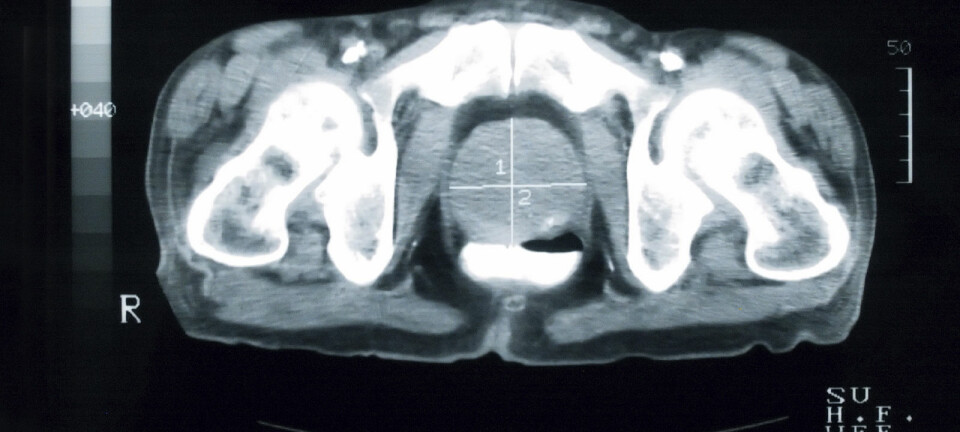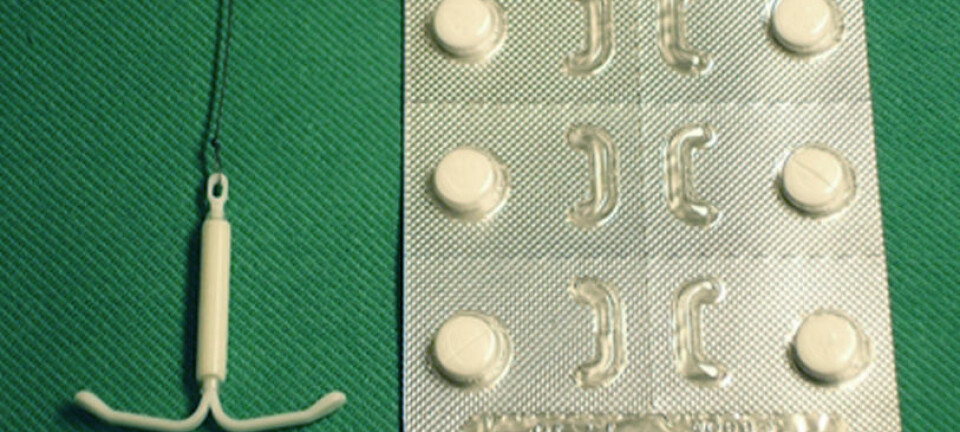This article was produced and financed by Oslo Metropolitan University

Testicular cancer not affected by the mother’s sex hormones
Testicular cancer probably originates from hormonal disturbances at the embryonic stage, but is independent of the mother’s genes.
Denne artikkelen er over ti år gammel og kan inneholde utdatert informasjon.
“We did not find any coherence between the son’s testicular cancer and the genetic variants of the mother,” says Biomedical Laboratory Technologist and Researcher Wenche Kristiansen at Oslo and Akershus University College of Applied Sciences (HiOA).
The results indicate that the most important hormonal changes in the development of testicular cancer during the pregnancy originate in the embryo itself.
Kristiansen has a doctoral degree in alterations in sex hormones of former patients diagnosed with testicular cancer.
Unique study
Kristiansen has studied the genetic differences of both Norwegian and Swedish patients and their parents.

The study is done together with a research group at HiOA, the Cancer Registry of Norway and the medical university Karolinska Institutet in Stockholm, and the results are included in Kristiansen’s study.
“We were especially interested to find out whether genetic variants regulating the exposure of sex hormones influence the risk of testicular cancer,” she explains.
The conclusion is that some genetic variants constitute different risks of developing testicular cancer.
“It has long been recognised that disturbances in the balance of sex hormones during the pregnancy increase a child’s risk for testicular cancer,” explains Kristiansen.
Salvia samples from 2000 men
From 2008 to 2009 the research group collected salvia samples from 2000 Norwegian and Swedish men who had survived testicular cancer and were in the age 18-45 when they were diagnosed.
Samples were also collected from their parents.
The samples were used for genetic analyses. The researchers also reviewed the analysis of a similar study comprising 4000 Swedes.
They could not detect any difference between the Norwegian and the Swedish population.
This implies that there are other genes than the sex hormone genes that are important for the difference in the risk for testicular cancer between the two countries, in combination with environmental factors.
“We assume that some people have genetic variants that handle environmental factors better than others,” says Kristiansen.
Overweight, hormonal disturbances, smoking, contraceptive pills and pollution are possible environmental factors that may be involved.
Number of men with testicular cancer increases
The reason for the dramatic increase in testicular cancer worldwide remains unknown, but there is a con understanding that both genetic and environmental factors are important.
In 2009, 320 incidents of testicular cancer were registered in Norway, which is one of the highest numbers of testicular cancer in the world.
Sweden has fewer occurrences than Norway, but the number of cases has been increasing during the last decades.
"We do not know the reason for the great differences in the Nordic countries," says Kristiansen. "The occurrence is approximately the same in Denmark, but twice as many as in Sweden and four times as many as in Finland."
Testicular cancer is the most common form of cancer in men between 15 and 40 years of age.
































